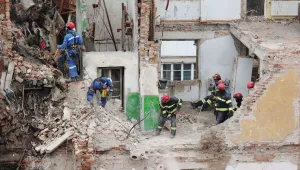Kyiv’s Perfect Storm: Ukraine’s Perilous Position between Russian Aggression and U.S. Partisan Warfare
The Intelligence Project will host a seminar with Daniel Hoffman, former Chief of Station and Senior Executive Clandestine Service Officer with the CIA, on Monday, November 25th from 2:00-3:15pm in One Brattle 350. Paul Kolbe will moderate.
Admission will be open to Harvard students, staff, faculty, fellows, and affiliates and refreshments will be provided.


